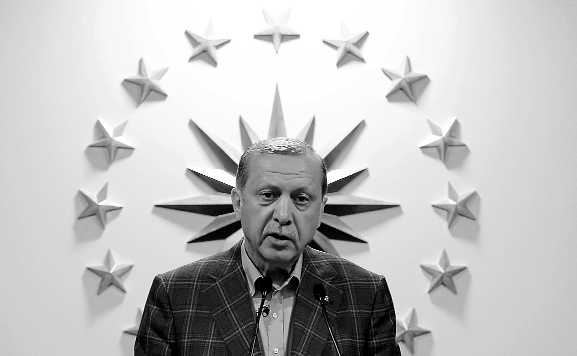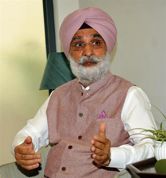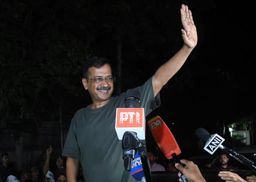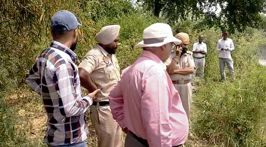
Recep Tayyip Erdogan now heads a state which has jettisoned democracy and secularism. Reuters
By K. Natwar Singh
THE Turkish President, Recep Tayyip Erdogan, will be in New Delhi soon. What he has recently done in his country is unlikely to make any difference to the nature of his welcome. He is assured of a resounding one.
In the recent referendum, the President to his discomfort (not acknowledged by him), Istanbul, Ankara and Izmir did not vote for him. The ultimate outcome of the referendum was not overwhelming but decidedly underwhelming — 51.5% in favour, 48.5% against. From a genuine democrat, the Turkish President now, for all practical purposes, heads a state which has jettisoned democracy, secularism and human rights. The referendum ensures his being in office till 2029.
The unsuccessful coup last summer was botched up by the coup-wallas. President Erdogan got his opportunity. He squashed it mercilessly. Within a week, the President became an unsettling and feared leader in his part of the world. The leaders of the coup are now the President’s guests in Turkish prisons where there treatment is severe. Dozens of mediapersons are locked up.
The founder and father of modern Turkey was the great Mustafa Kemal Ataturk. He abolished the Fez cap, reformed the alphabet and ran a popular secular democracy in which the fundamentalist has no place. Above all, he put an end to the Caliphate. Jawaharlal Nehru in his ‘Glimpses of World History’ has given Kemal Pasha (Ataturk) twenty pages.
President Erdogan’s problems are not over. His entry into the European Union is now a receding objective. The Kurds are restless. His NATO partners are livid and fearful. While his relations with Syria have worsened, though relations with Russia have temporarily improved. Turkey remains a divided country.
**********
THE other day, I had an extraordinary experience. I, along with four nine-week-old Pekinese pups, got stuck in the lift in our home. I suffer with acute claustrophobia. The puppies don’t. So long as one keeps away from the laser censors, the lift works. The puppies have no idea what laser censors are. So, all four parked themselves between ends of the laser censors. The lift stopped. I pressed every button, but to no avail. Fortunately, the lift is made of glass, otherwise, I would have been more than alarmed. We rang up the lift people but it took time to get hold of them. In the meantime, the oxygen was depleting. Just then the lift people came in. So, don’t come in the way of laser censors and don’t take 9-week-old puppies in the lift. For me it was not an agreeable event. The puppies loved it without realising the havoc they had caused for over half an hour. Lesson: do not take puppies in a lift.
**********
IN the next weeks, France and the United Kingdom will go to the polls —France in May and the UK in June. And finally, Germany in September. These three are the most important and influential nations in Europe. At the moment, the UK is both in and out of the European Union. We shall see in June: the UK will be out. David Cameron by his folly has all but broken up the UK, thus making it a B class nation. It has lost influence both in Europe and the world. Cameron made the same mistake that the great de Gaulle made nearly 50 years ago. He lost a referendum which was totally unnecessary.
The results will have an impact on India in more ways, then. Mrs Merkel is the longest serving head of government in the European Union. Mrs May is very likely to win and thus will no longer be an inexperienced Prime Minister. As in France, no candidate has emerged as a definite winner. Mademoiselle Marine Le Pen is a far-right candidate politician who, if she occupied the Élysée, will be the first woman to do so. Exciting times ahead.
Socrates (469-399 BC) was, along with Plato (429-347 BC) and Aristotle (384-322 BC), a giant among the shapers of the whole intellectual tradition of the West. For “corrupting” the young he was sentenced to death and to take poison, which he did, spurning offers to help him to escape into exile.
I am reading Plato’s, ‘The Last Days of Socrates’, after half a century. The closing paragraph of ‘The Apology of Socrates’ reads: “Now it is time we were going. I to die and you to live; but which of us has the happier prospect is unknown to anyone but god.”



























